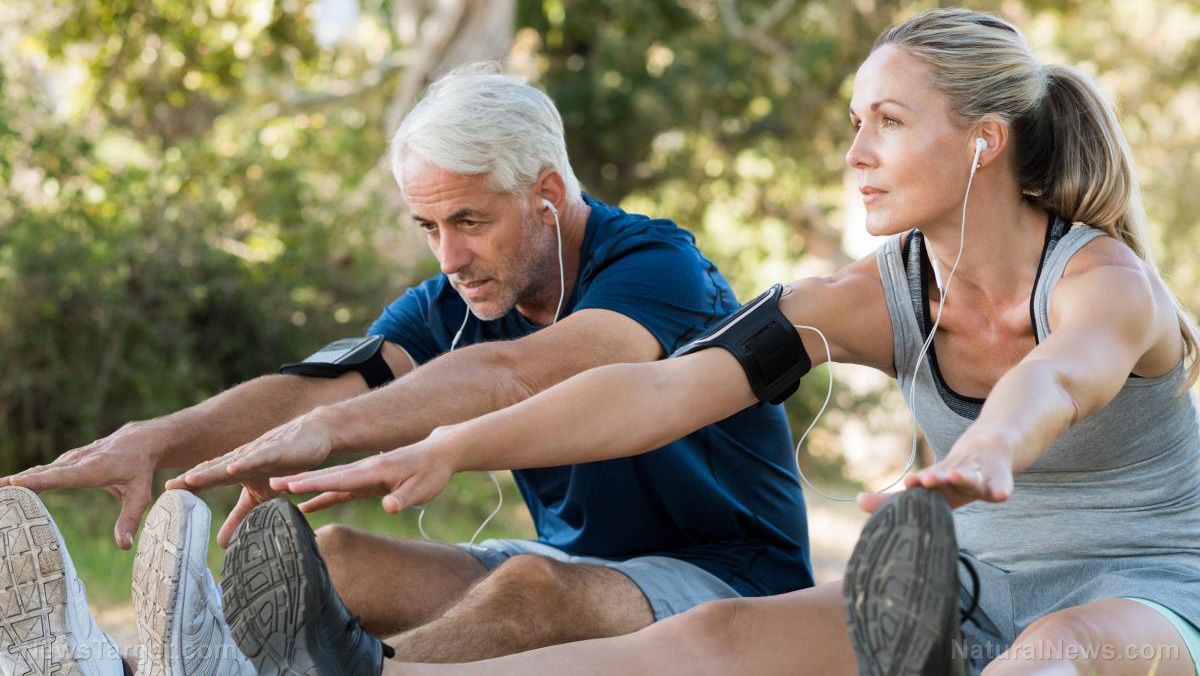Learn about brain health and nootropics to boost brain function
Physical fitness equals brain fitness for older men, according to study


(Natural News) Brain function tends to decline with age. The good news is that exercise is found to boost brain health, especially for aging men. A study published in the Journal of Applied Physiology revealed that older men who exercise regularly saw better improvements in their cognitive function or executive function than older women. Executive function refers to a person’s ability to focus, pay attention, and manage time.
Researchers from York University and McGill University in Canada observed men and women with an average age of 67, who reported their daily physical activity level during the study. They also reported their height, weight, age, sex, and resting heart rate, which the researchers used to measure their cardiorespiratory fitness. Cardiorespiratory fitness measures the amount of oxygen in the body and how well it is delivered to the muscles during exercise. Fitness levels can also affect the brain’s gray matter, which determines cognitive function. In addition, the researchers conducted brain imaging tests to record the participants’ nerve function both within specific brain networks and among all networks.
Although the women exhibited higher local network efficiency and lower global network efficiency, the men saw greater improvements in cardiorespiratory fitness. This suggested that gender makes a difference in the overall effect of exercise on the brain.
“Our findings that [cardiorespiratory fitness] is associated with brain function in a sex-dependent manner underscore the importance of considering sex as a factor when studying associations between exercise and brain health in older adulthood,” wrote the researchers.
Mother Nature's micronutrient secret: Organic Broccoli Sprout Capsules now available, delivering 280mg of high-density nutrition, including the extraordinary "sulforaphane" and "glucosinolate" nutrients found only in cruciferous healing foods. Every lot laboratory tested. See availability here.
How much exercise do older adults need to improve their brain function?
Older people may need at least 52 hours of exercise over six months to improve their reasoning and processing skills, according to a study published in the journal Neurology: Clinical Practice. The exercise can even be low-intensity as it has the same benefits – if it’s done for this duration.
The study assessed all randomized controlled trials that studied seniors who worked out for at least four weeks. Their memory and reasoning skills were compared with those who did not exercise. The researchers gathered 98 studies with more than 11,000 participants in total. Fifty-nine percent of the participants were deemed clinically healthy, 26 percent had signs of mild cognitive impairment (MCI), and 15 percent had fully developed dementia.
The most common type of exercise tested by these studies was walking. Some studies used other forms of aerobic exercise, such as cycling or dancing, while others assessed the effects of aerobic exercise combined with strength or resistance training. Other studies examined strength training alone, while several used yoga or tai chi.
The current study’s researchers found that those who exercised for at least 52 hours over an average period of six months processed information better than those who didn’t. This effect was seen in both clinically healthy participants and those who had MCI. In addition, healthy participants improved their executive function.
Those who only exercised for 34 hours over the same period did not reap any benefits – regardless of whether they were healthy or had MCI or dementia.
As for exercise types, the researchers found that all – including aerobic, strength training, and mind-body practices like yoga – were equally beneficial for the thinking skills of older people.
Based on these results, the researchers concluded that only the duration of exercise could improve cognitive function among aging people. They also suggested that a longer-term exercise program may be needed to reap its benefits on thinking skills. (Related: Research finds exercise increases brain size, memory function as you age.)
Read more articles on how exercise benefits the brain at Brain.news.
Sources include:
Click here to view full article